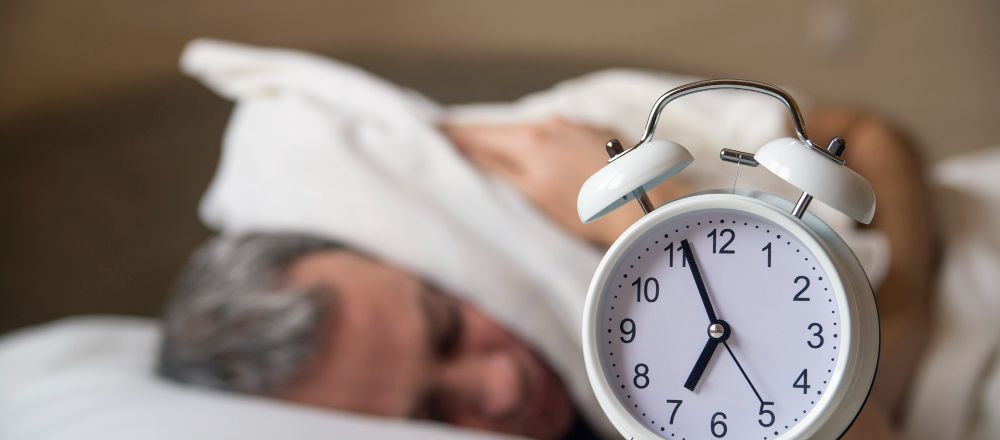Treatment of Short Term Insomnia
- Posted On: July 30, 2023
- Posted By: admin

A common sleep issue known as insomnia can make it difficult to get asleep, keep asleep, or lead you to wake up too early and have trouble falling back asleep.
When you wake up, you could still feel worn out. Your health, productivity at work, and quality of life can all be negatively impacted by insomnia in addition to your energy level and mood.
Individual needs for sleep vary, but most individuals need seven to eight hours each night.
Many individuals eventually go through short-term (acute) insomnia, which can endure for days or weeks.
Typically, stress or a traumatic incident is the cause. However, some persons experience persistent long-term insomnia that lasts for a month or more. The main issue can be insomnia, or it might be brought on by other illnesses or drugs.
Symptoms
Some signs of insomnia include:
- difficulty sleeping at night
- Having a nighttime awakening
- too early of an awakening
- Having trouble recovering after a night’s sleep
- Daytime drowsiness or fatigue
- Anger, sadness, or irritability
Insomnia Treatment is very important for you as it can effect your body and mood very badly. If you don’t follow proper Sleep Hygiene such as relaxation, clean environment and medication it will result in acute insomnia.
Diagnosis
The diagnosis of insomnia and the pursuit of its root cause may involve, depending on your circumstances:
Exam Your Body.
Your doctor may do a physical examination to check for any indications of any health issues that could be connected to insomnia if the cause of the condition is unknown. On occasion, a blood test may be performed to look for thyroid issues or other disorders that might be connected to a lack of quality sleep.
Are you suffering from Sleep Deprivation? Looking for solution? We have it. insomniatreatment.info provides you best insomnia consultation and treatments at the most affordable range.
Review of sleep patterns.
Your doctor may complete a questionnaire with you in addition to asking you questions about sleep in order to assess your sleep-wake cycle and level of daytime drowsiness. Additionally, you might be required to keep a sleep journal for a few weeks.
Sleep Research.
You might need to spend the night in a sleep center if the reason of your insomnia is unclear or if you exhibit symptoms of another sleep condition, such as sleep apnea or restless legs syndrome. The actions of your body while you sleep are tested for, including your heartbeat, respiration, eye movements, and body movements.
Treatment
Many people may get back to sleeping well by altering their sleeping patterns and taking care of any problems that may be contributing to their insomnia, such as stress, underlying medical disorders, or drugs.
Sleep Disorder is the thing that should be conscious off. It will affect your mental health and adversely affect your body.
For Insomnia, Try Cognitive Behavioural Therapy
The first line of treatment for insomniacs is often cognitive behavioural therapy (CBT-I), which can help you manage or stop the unpleasant thoughts and behaviours that keep you awake. Usually, CBT-I is just as effective as or even better than sleep aids.
In the cognitive component of CBT-I, you learn to identify and modify thoughts that interfere with your ability to sleep. It can assist you in managing or getting rid of worrying thoughts and anxieties that keep you up at night. Getting rid of the cycle where you worry so much about sleeping that you can’t fall asleep may also be necessary.
Ways for Relaxation.
There are techniques to lower anxiety before bed, including progressive muscle relaxation, biofeedback, and breathing exercises. You may learn to relax by using these strategies to modulate your breathing, heart rate, muscular tension, and mood.
Medications on prescription
You can use prescription sleeping drugs to aid in falling asleep, staying asleep, or both. Most of the time, doctors advise against relying on prescription sleeping pills for more than a few weeks, but there are some drugs that are okay to take for a long time.
Examples comprise:
- Lunesta, or eszopiclone
- Rozerem (Ramelteon)
- Zolpidem (Ambien, Edluar, Intermezzo, Zolpimist) and zaleplon (Sonata)
Looking for Affordable Treatment with Best Experts?
Insomniatreatment.info is the best place where you can get solution for your sleep disorder with the number one experts in the industry. What is the best part is that you get expert advise in affordable range. Go and schedule your appointment now!